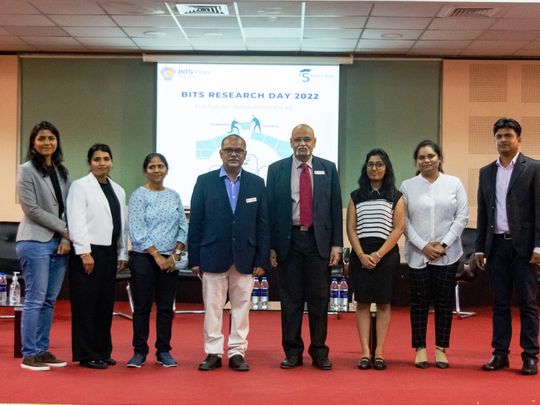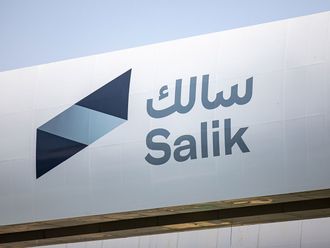
With the aim of bridging the gap between academic research and industry requirements and fostering fruitful exchanges amongst students, faculty and industry stalwarts, BITS Pilani Dubai Campus (BPDC) for the very first time organised a Research Day last week. The day was marked with enthusiastic participation of over 150 attendees from various academic institutions and industries spanning various disciplines of biotechnology, engineering, general sciences, humanities, and social sciences. A panel discussion that featured eminent members of industry and academia as members provided an enriching experience for the attendees. Over 50 research scholars presented their works through oral and poster presentations and showcased their research to industry professionals and fellow students, inspiring the exchange of innovative ideas across a wide breadth of global challenges.
Corporate leaders and public sector policy makers from institutions such as DEWA, RTA, Invygo, Covestro Middle East LLC, Master Builders Solutions Construction Chemicals, TUV Nord and Unique World Robotics attended the event and evaluated the presentations by the research scholars.
The posters presented by the research scholars highlighted recent research in BPDC on topics of great current and future relevance such as food packaging, therapeutic cancer treatment, bioactive compounds in UAE plants, waste water treatment, energy efficient buildings, photocatalysis, sustainable bus services on PPP model, use of artificial intelligence and machine learning in early detection of plant diseases for food security and smart packaging, IoT in intrusion detection, smart parking, intelligent robotic applications in hazardous environments and manufacturing, and design and development of micro-vortex generators for aerospace applications. Posters from humanities and social sciences included study on South Asian immigrant entrepreneurs in UAE, e-commerce and brick and mortar stores for the fashion retail sector in GCC countries.
Welcoming the delegates, Prof. Srinivasan Madapusi, Director, BPDC, said, “BITS Research Day is an initiative by research scholars to make academic research more accessible and bring it to the real world. An effective alliance between academia and industry has the potential of boosting research activities for the larger benefit of the society. Research Day is a platform that brings educational institutions and industry leaders together to form a symbiotic relationship to meet each other’s needs and create a substantial and sustainable win-win situation for all.”

The event was graced by invited talks from prominent members of industry and academia. Prof. Pushpak Battacharya from IIT Bombay emphasised the need of natural language processing in a multilingual world. Prof. Ramesh Bansal from the University of Sharjah championed the cause of renewable energy. Prof. Sayak Bhattacharya, from the American University of Sharjah detailed current trends in research on robotics. Invited talks from the industry featured Dr Angelika Eksteen and Nader Kabbara from AI Directions who presented the vast applicability of artificial intelligence in different sectors like healthcare, farming, retail and banking.
A panel discussion entitled “Bridging the gap between academia and industry” was moderated by Dr Snehaunshu Chowdhury of BPDC. Raed Higer, Sr. Principal Technologist, Dell, Aloysius Fernandes, President, Redington Gulf, Dr Kanak Madrecha, Principal Consultant, Dr Kanak Madrecha & Associates FZ LLE, Amna Abdul Jalil, Additive Manufacturing Engineer, Sharjah Technology & Research Park, Revanand Athavale, VP, Schneider Electric presented their views on behalf of the industry. The academic points of view were put forth by Dr Hafiz Ahmed, RAK Medical and Health Sciences University, Prof. Abdel-Hamid Mourad, UAE University and Prof. Sathish Kannan, American University of Sharjah.
Concluding the event, Prof. R. Karthikeyan, Dean of Academic Graduate Studies and Research, BPDC, said, “The event provided the research scholars with a scope to gain sufficient insight into real world problems and provided them an opportunity to connect with the industry while the people from the industry got a glimpse of the nature and quality of academic research being pursued in various universities which will lead to more collaborative research. All the attendees agreed that the research gap needs to be bridged by maintaining constant channels of communication to exploit the synergistic benefits of the academia-industry ecosystem.”











